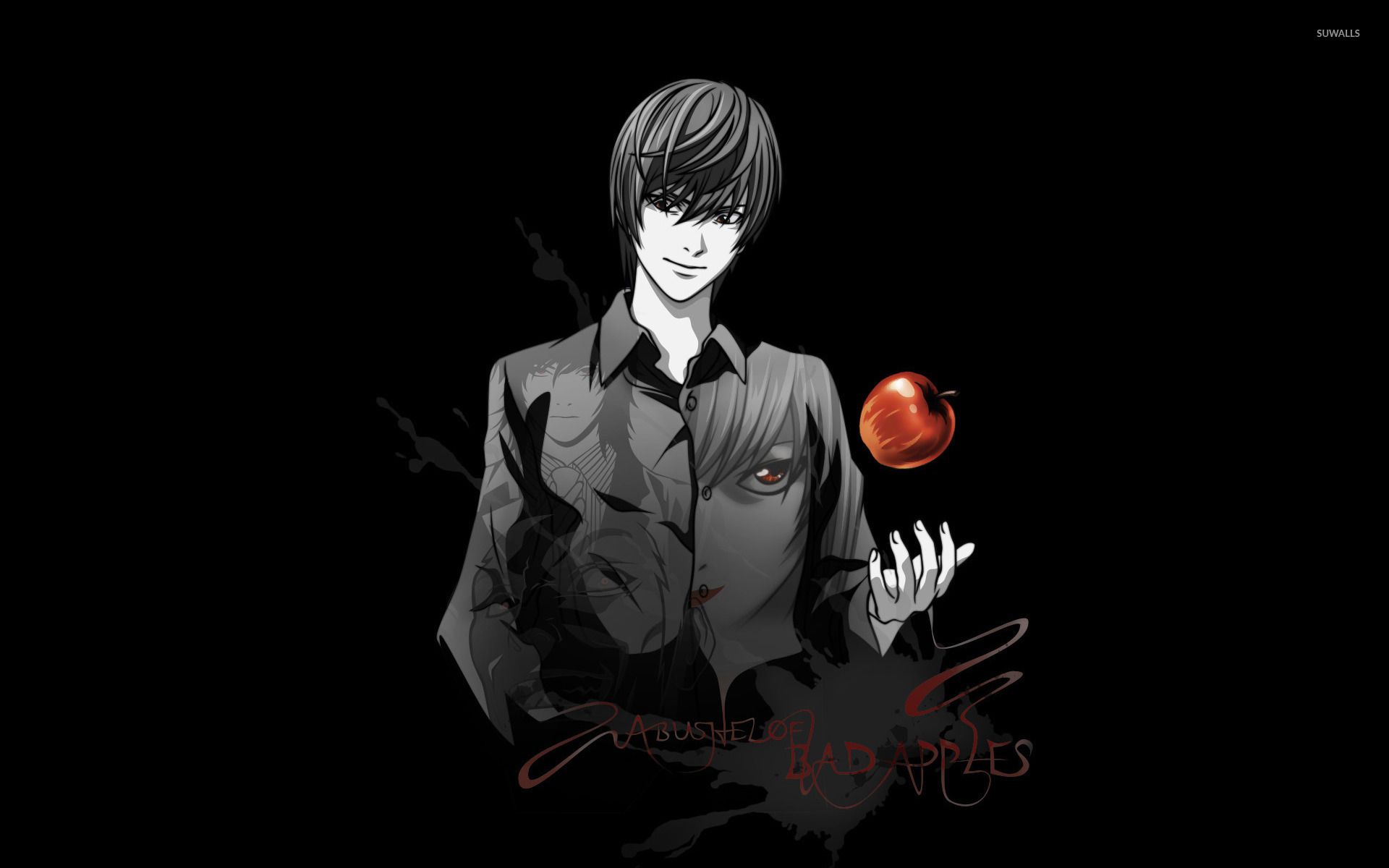Death Note
Although I’ve seen this show many times, I feel like it deserves a review in light of the American bastardisation that lives on Netflix – like a disease completely immune to “cerebral” antibiotics – and that the original show ALSO resides on Netflix in a quality, subtitled form with the better, Japanese voice acting. The original “Death Note” show represents near-perfect drama. If you haven’t seen it, carve out a few days to watch it. When I started it, I couldn’t stop: I spent the three, consecutively sleepless nights binging the entire series. I regret nothing.
The story is simple: a guy named Light finds a notebook that has instructions on the back. If you write someone’s name in it, while imaging their face, they will die. It’s ludicrous, and he dismisses the premise only to later test his morbid curiosity. The book works! From this moment, we already have a sense of who this character is, and he goes on a purge. It’s a believable shift and a tragic character flaw that plays itself out through the whole show. The sequence of him drafting names, followed by their subsequent deaths, is the most riveting rendition of handwriting I’ve ever seen.
Using a power like this is not without repercussions. Light is visited by a Shinigami (roughly, “god of death”) named Ryuk who tells him more about the power of the book. Ryuk also explains how Light came upon the book – by sheer chance. He had dropped the book from the realm of the dead just to see what happens…. What’s curious is that I think Ryuk is the actual protagonist, and he resembles us as the audience – he may have judgements, but he holds them close, and he merely wants to see where things go. He just wants to be entertained, as do we.
This is just the first episode. It is loaded with dramatic tension that links you to the next episode. You HAVE to watch, you HAVE to know. It’s an unstoppable force of dramaturgy.
What follows is a perfect relationship between anti-hero and antagonist that I’ve ever seen, in the form of Light’s nemesis and necessary other half: a genius crime consultant named L. I think they are so perfectly balanced that it often goes unappreciated. We take for granted the beauty of the mental and emotional weighting, and their cat-and-mouse interactions play like two chess masters exchanging pieces at rapid speed.
And unlike other anime that force us to assume ridiculous premises (like the Devil getting a part-time job at a burger joint to bide his time and recover from a battle in Heaven, or a 15-year-old high school student gaining access to a secret soul society where he amasses unimaginable power), the characters in “Death Note” are unassuming. The book isn’t mentioned, and despite hearing the phrase “shinigami,” they just think it’s code.
But they rationally and believably discern that something is happening, that people are dying en masse, and that some agent is responsible. They just don’t know how. For whatever reason, this fact is important to me because the writers have to lead themselves (and us) to solve the puzzle with the detectives that defies logic, yet logic is their only tool. It sucks you in and you are having your mind blown right alongside them.
One thing to note is that these shows are short (about 20 minutes), but the dramatic tools are similar to those of a movie or a long-form show. I saw a video where someone counted the dramatic beats throughout an episode; he came to 42 beats. That’s a major shift of character objective every 30 seconds. And you feel it.
The other piece of this is that you rarely experience a show where the stilted visuals are part of the point. There is endless inner dialogue, and it works because the entire point is what you show of your intent and to whom. The show is still visual – and exquisitely so – but it’s nuanced. In the first episode, where Light is visited by Ryuk, he is startled off of his chair. But he reaches out and there’s a shot of his hand gripping the edge of the chair to lift himself up.
It is a simple insert, but it tells the story of Light’s resolve – he was spooked, but not truly surprise. This is something the Netflix film completely misses and changes to cringeworthy comic effect. Light is a piece of shit, he isn’t a coward. He’s a version of Raskolnikov from “Crime and Punishment,” he’s a dictator, he’s a morally repugnant soul, but – just like Ryuk – we reserve our judgement. We just want to see where this goes….
Go watch it.

